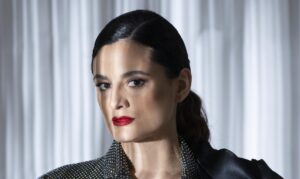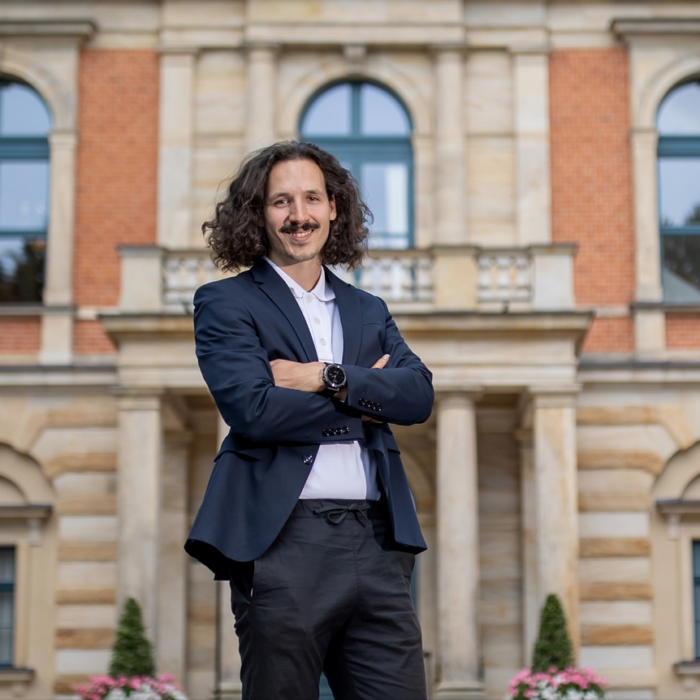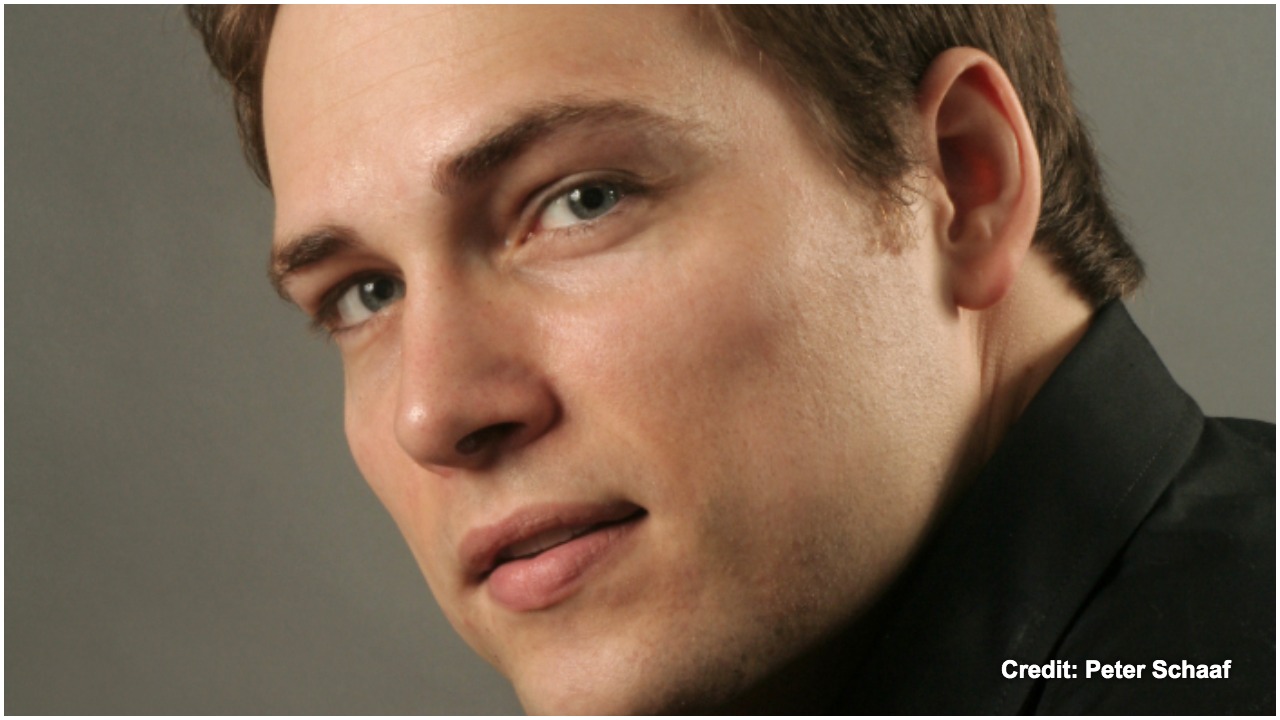
Q & A: Mezzo-Soprano Raffaella Lupinacci On Her Role Debut As Arsace At The Rossini Opera Festival
By Alan NeilsonWith less than a month to go before the start of Pesaro’s Rossini Opera Festival, OperaWire met up with one of this season’s stars, mezzo-soprano Raffaella Lupinacci, who will be playing the role of Arsace in Rossini’s opera seria “Aureliano in Palmira,” which premiered at Milan’s Teatro alla Scala in 1813. Although it is not one of Rossini’s better-known operas, it is one with which Lupinacci is very familiar, as she actually appeared in the same production when it premiered at the festival in 2014.
On that occasion, however, she was cast in the relatively minor role of Publia after impressing in her first ever professional role two years earlier in “Viaggio a Reims,” also at the festival. In effect, she is returning to the place where her career began, a career that has since grown into one with international standing.
As well as discussing her role as Arsace, Lupinacci also reflected on her career so far and how she would like to see it develop, and she offered some interesting insights on how she keeps her voice healthy.
Operawire: The first time OperaWire reviewed one of your performances was as Neris in “Medea” at the Wexford Festival Opera in 2017. Have you been pleased with how your career has progressed since then?
Raffaella Lupinacci: I have been singing professionally for about ten years now and have been very happy with the way it has gone. Each year, I have tried to take one or two small steps to improve my career. I don’t want to jump forward. It is very important that I do what is good for me at the moment in which I find myself. On occasions, I have been offered the opportunity to sing roles that have been very different from my usual repertoire, and I have always taken my time in deciding whether or not to accept them. I respect my voice; my career depends on it, and these decisions are very important. Opera is an industry like any other, so you need a strategy to develop your career. It is possible to follow the easy path of taking on any major role that comes along, but I prefer accepting realistic challenges, those that will allow me to develop as an artist but that will also not harm my voice. Obviously, I cannot ignore the financial side, but art is my primary concern. Also, if you don’t study and don’t respect your voice, your career is unlikely to last very long, which will have a negative impact on both your art and finances.
So, my career has moved forward carefully. My first professional role was at the Rossini Opera Festival in Pesaro in 2012, which I followed up with a number of small roles before I went to Wexford in 2017. The following year, 2018, I performed the principal role of Romeo in Vaccaj’s “Giulietta e Romeo” at the Festival delle Vale d’Itria in Martina Franca, since which time I have performed across Europe in a variety of high-profile roles.
Strange as it may sound, it was only about two years ago that I felt I had finally established myself properly as an opera singer. It happened when I made my debut as Giovanna Seymour in “Anna Bolena” at the Lithuanian National Opera in Vilnius. It was then that I felt I was singing with my voice. It was at this point that I realized that this was the repertoire in which I could best perform.
OW: Even though you are Italian, it is notable that you do not sing much in Italy these days. Is this a deliberate decision?
RL: In the first years of my career, I sang in Italy a lot, but I wanted to try other places; I didn’t want my career to be closed. I admit that nowadays I don’t sing in Italy very often, although I do sing here. Last year I sang at the Teatro Carlo Felice in Genoa, and obviously I shall be singing at this year’s Rossini Festival in Pesaro. But yes, I would now like to sing more often in my home country. Italy is a great country in which to sing, and it is my home.
OW: How would you describe your voice?
RL: I have a very particular voice. It is very flexible, with a good extension in both the upper and lower ranges. I consider myself to be a pure mezzo-soprano. I am definitely not a contralto, nor am I a soprano, even if I have easy high notes. I think it is the color of my voice that defines it as a mezzo.
OW: Has your voice changed noticeably over the years?
RL: Mine is a voice suited to the bel canto repertoire, but it needed time to develop. I am not a mezzo who could sing Ulrica or Azucena; these roles require a stronger voice than mine, which you tend to have from the start. At the beginning, my voice was light, and I worked a lot with it, although I never rushed it. I allowed it to develop in harmony with the body, which I believe is important if you want it to develop correctly. And I think that my voice has benefited from this. I feel my voice has improved, by which I don’t mean it has more volume or strength, but it has become a fuller voice with more body, and I still remain very careful in the way I treat it.
I am also my voice’s biggest critic. I am almost never completely happy with it, and I am constantly working on many aspects of it. For sure, I know I do many things well, but I can still do them better.
OW: You are about to make your role debut as Arsace in Rossini’s “Aureliano In Palmira” in Pesaro. What are your impressions of the role?
RL: It is not an easy opera; the plot is a little strange, and my part is a very difficult one. The role was written for the castrato soprano Giovanni Battista Velluti and is not really for a mezzo-soprano. Although it is definitely not for a contralto, you need the low notes typical of that voice as well as the high notes of a soprano; at some points you are singing very low notes, then after a couple of bars you need to switch to the high notes of a soprano. You also need the vocal coloring. Normally, when you are practicing, you place the voice metà in gola, but in this case, the voice moves far in both directions, and this requires a lot of flexibility. You need to be very careful. You cannot say that this is a soprano aria and the next is a contralto aria; each aria moves across a wide range. It is a real challenge, and you need to concentrate.
OW: Is Arsace an interesting character?
RL: The character is also a bit strange. At the beginning, he appears to be courageous and proud and stands up to Augustus and the Roman Empire in order to fight for his love; it is, after all, a love story, even if it has a political dimension. However, in the second part, he is sent to prison by Augustus and considers killing himself as well as Zenobia, the woman he loves, only for Augustus to forgive him, which Arsace accepts, and they all become friends. It is all a bit anti-climactic. I would have preferred it if someone died at the end. You know, if I, personally, had suffered what Arsace had, I wouldn’t be so willing to forget about it and move on.
The production is from 2014, in which I also appeared, but on that occasion it was in the role of Publio, not Arsace. I don’t know if the director, Mario Martone, will change anything, but I know the production. It is traditional, using classical settings. It is elegant and bucolic, typical of Martone’s style. It is not an easy opera to stage. There is not a great deal of movement, as the music does not really allow for it. In 2014, we performed it in the Rossini Theatre in the city centre, but as it is being renovated, we are doing it in the arena.
OW: What are your future engagements?
RL: Soon after I finish “Aureliano in Palmira,” I will be singing Elisabetta in “Maria Stuarda” in a concert performance in Athens. I am very happy about this, as it is a role I have wanted to sing for some time. Then in November, I shall be in Seville for a production of “Norma,” in which I will be singing Adalgisa. This will be followed by “La Cenerentola” in Hamburg.
OW: What are your longer-term ambitions?
RL: My ambition is to keep my voice in good condition, to improve it, to sing parts that will suit my voice and to achieve the highest level I can without stressing the voice. I can’t say that I have any specific roles that I am desperate to sing. Now that I have reached what I consider to be a high level, I would like to sing at the iconic theaters around the world, such as Covent Garden, La Scala, Paris, and Vienna. As for repertoire, I would like to stay mainly within bel canto; this is where my voice is suited, although one day I would like to sing some baroque, as I have a voice which I think is suitable for that repertoire.



